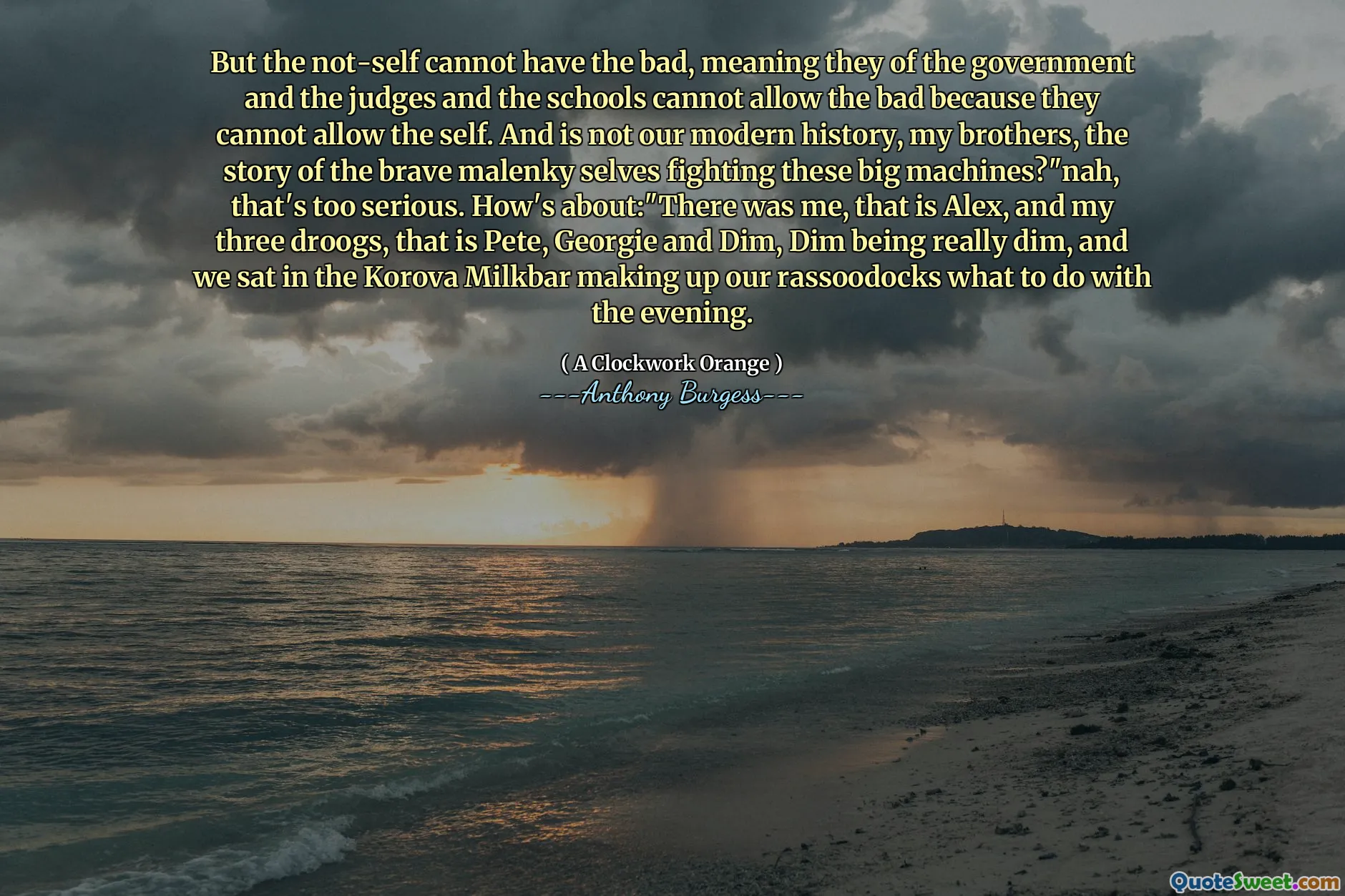
But the not-self cannot have the bad, meaning they of the government and the judges and the schools cannot allow the bad because they cannot allow the self. And is not our modern history, my brothers, the story of the brave malenky selves fighting these big machines?"nah, that's too serious. How's about:"There was me, that is Alex, and my three droogs, that is Pete, Georgie and Dim, Dim being really dim, and we sat in the Korova Milkbar making up our rassoodocks what to do with the evening.
The quote reflects on the tension between individuality and societal constraints. It suggests that entities like governments, judges, and educational institutions cannot tolerate any negative aspects associated with the self since they operate on the principle of suppressing personal identity. This conflict hints at a larger narrative of individuals, referred to as 'malenky selves,' bravely resisting oppressive forces that seek to diminish personal agency.
In contrast to the weighty themes of control and rebellion, the excerpt from "A Clockwork Orange" introduces a lighter, more playful tone. The protagonist Alex, along with his friends, engages in youthful antics at the Korova Milkbar, where they devise plans for their evening. This scene captures the essence of teenage camaraderie and the simplicity of their world, despite the underlying seriousness of their actions and the society surrounding them.








